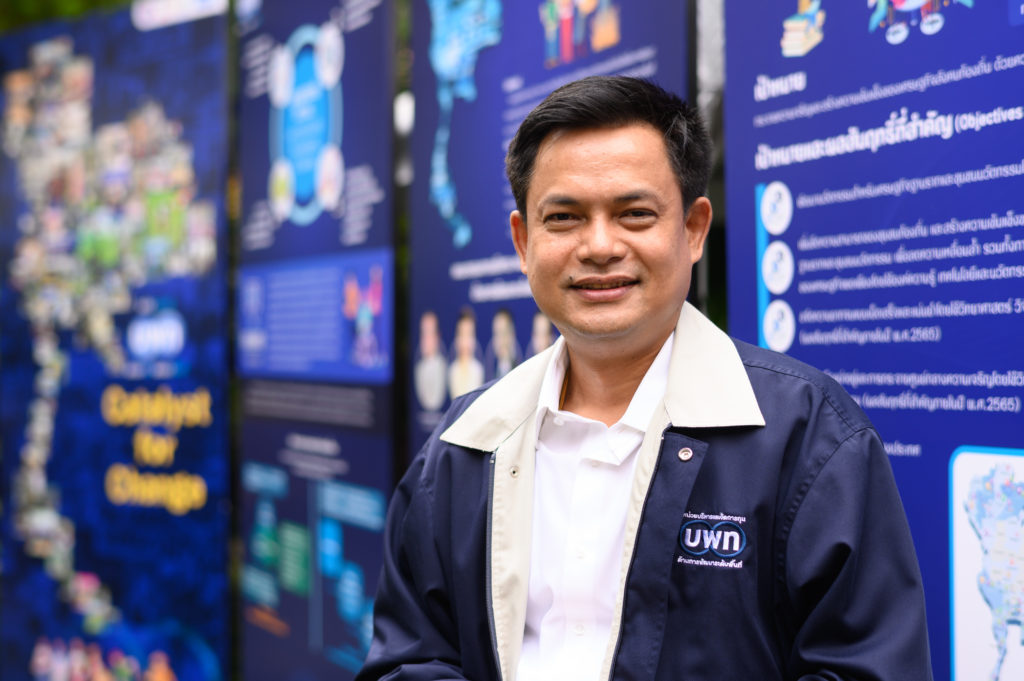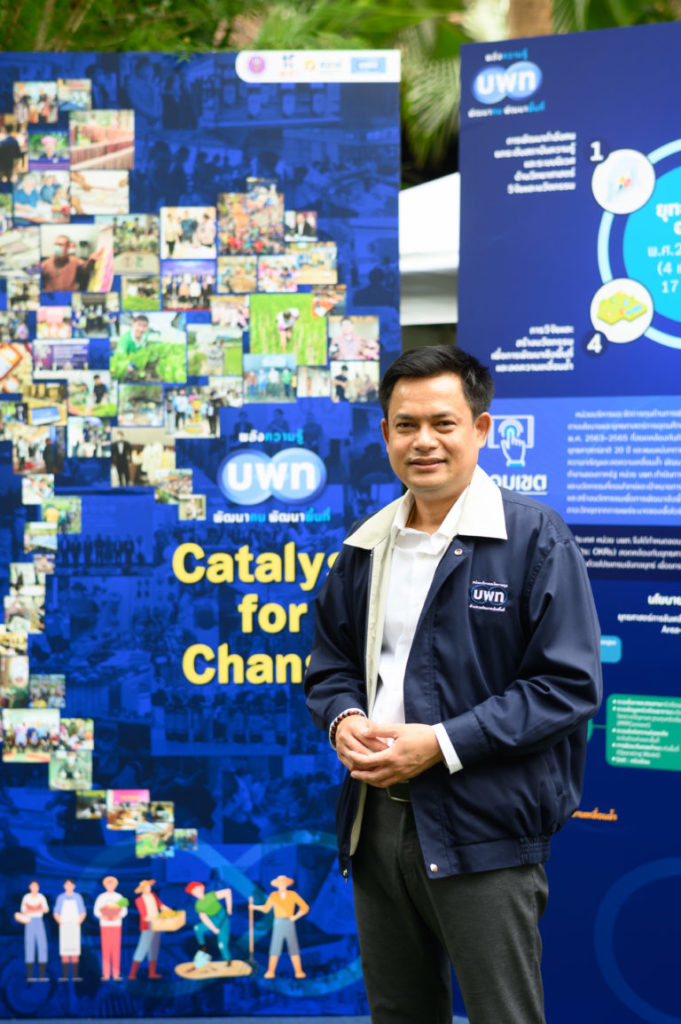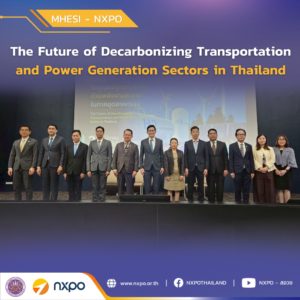Dr. Kitti Satjawattana, Director of Program Management Unit for Area-Based Development (PMU-A) announced plans to accelerate the poverty eradication program to alleviate the economic impact caused by the pandemic and the Russia-Ukrain war. The poverty eradication program not only helps put poor people into the government welfare program, but also strengthens local communities and local economy as the sustainable solution to end poverty.

Over the past two years, PMU-A has been working closely with local universities and communities to identify poor people with no access to the welfare program. A total of 850,000 poor people have been identified, 550,000 of which have already been placed in the government welfare system. Through this exercise, the Practical Poverty Platform, or PPP Connext, has been developed to house a database of poor households. The database provides useful parameters – human capital, economic capital, natural capital, physical capital and social capital – for designing proper solutions suitable to each individual household.

However, the work of PMU-A does not end at placing people in the welfare program. To enable absolute poverty eradication, people need to be empowered to earn a living. Therefore, PMU-A is launching a capacity building project in 20 districts. The project involves knowledge and technology transfer as well as skill development to enable poor people get jobs. The project will be piloted in 20 districts in 20 provinces and expect to train 40,000 people in total.
Apart from the poverty eradication program, PMU-A also works with universities on three strategic areas: 1) grassroots economy development by employing human capital, natural capital and cultural capital, 2) research and innovation for targeted poverty eradication, and 3) livable and learning city development.
In addition to the capacity building project in 20 districts, PMU-A has been supporting research projects in 60 provinces, expecting to develop 300 self-reliant subdistricts and 300 community businesses.
By the end of 2021, PMU-A in partnership with 99 universities was able to jumpstart 6,000 cultural community enterprises, develop 763 new innovations, initiate 995 new community businesses and create 546 innovation communities in 48 provinces. A total of 2,700 villagers have been trained on innovation skills and will lead long-term community development. The livable city program has led to the launch of 20 new companies engaging in urban development, 16 area-based management models, 5 area-based investment plans, and 20 demand-driven courses.
In 2022 work plan, the poverty eradication program will target 20 provinces: Kalasin, Chai Nat, Pattani, Mukdahan, Mae Hong Son, Yasothon, Sisaket, Sakon Nakhon, Surin, Amnat Charoen, Buriram, Nakhon Ratchasima, Loei, Roi Et, Lampang, Phitsanulok, Phatthalung, Yala, Narathiwat and Ubon Ratchathani.







